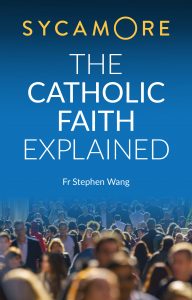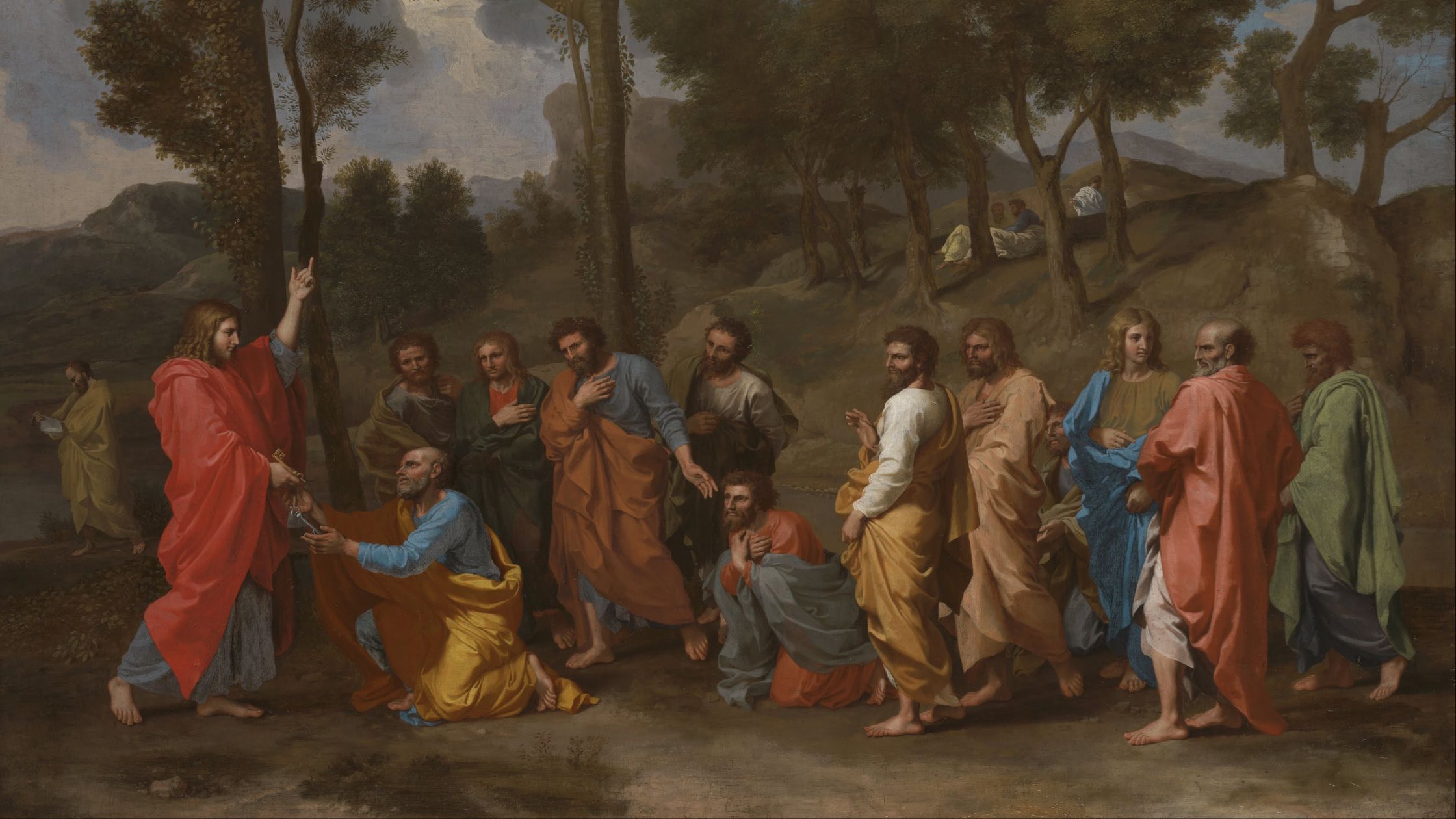This blog is extracted from our book SYCAMORE: The Catholic Faith Explained by Fr Stephen Wang. Click here to order your copy!
If you look back to the New Testament, what did the community of the Church actually look like? Well it wasn’t always tidy, but Jesus did have a very clear plan, and you see this unfolding in the Gospels.
He chose twelve of his disciples to lead his community, with St Peter as their head. He called them Apostles and gave them authority to preach and to heal. He gave them a set of religious and moral teachings to share with others.
He instituted the sacraments so that Christians could worship God and grow in holiness. He treasured the writings of the Old Testament and sent his Holy Spirit to inspire the authors of the New Testament.
So if you want to find the Church, this is what you need to look for: the Bible, sacraments, teaching authority, and unity with St Peter and the Apostles and their successors. And then the obvious question is: Where can I find this Church today?
The diversity of Christian life today is amazing. You can go to a tiny chapel in the Arctic Circle that belongs to the Church of Norway, or a Pentecostal mega-church in Nigeria that seats a million worshippers (I’m not exaggerating).
You can join communities that claim an unbroken continuity with the churches of the Apostles. Or you can find a church that was started a few months ago in your neighbour’s garage with nothing more than a Bible and a prayer to the Holy Spirit.
You can discover literally thousands upon thousands of different denominations and church organisations, with many different teachings and traditions, and some of them even with different Bibles.
Catholics believe that the Catholic Church has a special place in God’s plan of salvation. The Catholic Church hands on the apostolic faith in its fullness and preserves the unity of the Church through history. It’s not just one denomination among many, it’s the place where you find the reality of the Church in all its fullness. This is a big claim! Why should we believe it?
In the Gospel of St Matthew, Jesus said to St Peter: “You are Peter, and on this rock I will build my Church, and the gates of hell shall not prevail against it” (Mt 16:18). He sent out his Apostles to teach and to baptise, and to “make disciples of all nations” (Mt 28:19-20). And he wanted this apostolic ministry to be handed on to the next generation of Christian leaders in a process called “apostolic succession”.
Catholics believe that the Catholic bishops today are the successors of the Apostles, and that the Pope, the Bishop of Rome, is the successor of St Peter. The unity of the bishops around the Pope guarantees the unity of the Church.
There is an unbroken continuity through history with the community that Jesus gathered around him two thousand years ago, and with the Jewish people to whom he belonged. There is a continuity of faith, of teaching, of sacramental worship, of love for the Bible, of apostolic ministry – passed down from one generation to the next.
You might say: “But I can base my faith on the Bible.” But it’s not so easy, because Christian communities cannot agree on how to interpret the Bible, and they can’t even agree on which books should be included in the Bible. We need the authority of the Catholic Church – guided by the Holy Spirit – to help us identify the books of the Bible, and then to help us understand them correctly.
Now the Catholic Church is not without its problems, and it does not have a monopoly on Christian faith. There are so many amazing Christian communities out there, and so many amazing Christians that belong to them. I’ve learnt so much from friends who are Orthodox, Anglican, Baptist, Lutheran, Free Church, Evangelical.
We are united in so many ways, above all through our faith in Jesus Christ and through our common baptism. We work and pray together, and I hope that we will go to heaven together.
But to belong to the Catholic Church gives you the guarantee that you are part of that fullness of faith that Jesus gave to his Apostles. Despite all the external changes over the centuries, the fundamentals of Christian life and teaching have remained the same in the Catholic Church. The faith that Jesus gave to his Apostles two thousand years ago has been handed on from one generation to the next.
I had to work all this out for myself as a teenager. I was baptised in the Church of England, but I had no faith and I was living a completely secular life. But when I was seventeen and began to believe in Jesus, I was searching for a spiritual home.
I could see that there were thousands of different Christian denominations. It was very confusing. And I was afraid of just choosing a church that reflected my own preferences, as if I were walking round a religious supermarket deciding which denomination to put in my shopping trolley. This is what Cardinal John Henry Newman called the error of “private judgement”, when you make a religious choice that just reinforces your own personal opinions or prejudices.
So I tried to be objective. Where is the Church that goes back through history to the one that Jesus founded? Where is the Church that has handed on the sacraments and the apostolic faith in an unbroken tradition from one generation to the next? Where can I find the successors of the Apostles and the successor of St Peter? These questions eventually led me, like Cardinal Newman, into the Catholic Church.
It might sound a bit simplistic, but I’d still make the same decision all these years later. I have no less love or admiration for the Christians I know in other communities; but my appreciation for the importance of the Catholic Church has grown more and more.
Questions for reflection
What different Christian churches or denominations have you come across? What are the differences between them?
What special gifts or characteristics does each one have?
What are the characteristics you associate with the Catholic Church in particular?
Do you think Christians need a historical, apostolic Church that goes back to Jesus? Or is this less important?
Continue Reading About the Catholic Faith
 In SYCAMORE you will find answers to the most common questions about life and faith, whether you want to deepen the faith you already have or are exploring the faith for the first time. Written in a conversational style with beautiful colour images.
In SYCAMORE you will find answers to the most common questions about life and faith, whether you want to deepen the faith you already have or are exploring the faith for the first time. Written in a conversational style with beautiful colour images.
